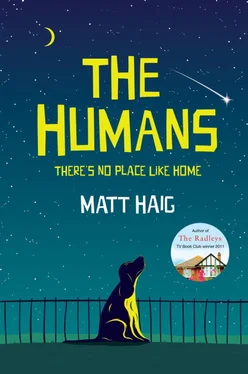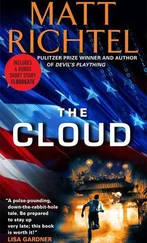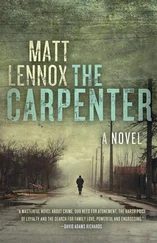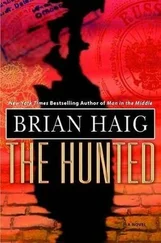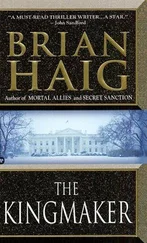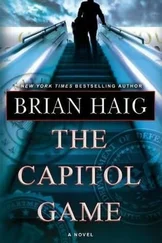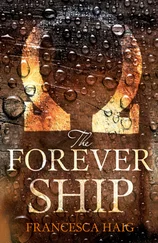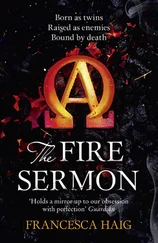After getting to grips with all this I then trawled through all the pages full of numbers, graphs and mathematical symbols. This was another language for me to learn, but it was an easier and more truthful one than the one I had learnt with the help of Cosmopolitan .
And by the end of it, after a few moments of sheer terror, I was in quite a state. After that very last and conclusive ∞, I was left in no doubt that the proof had been found, and the key had turned that all-important lock.
So, without so much as a second’s thought, I deleted the document, feeling a small rush of pride as I did so.
‘There,’ I told myself, ‘you may have just managed to save the universe.’ But of course, things are never that simple, not even on Earth.
ξ(1/2+ it )=[e Ŗlog( r ( s /2))π -1/4(– t 2–1/4)/2]x[e i Jlog( r ( s /2))π - it /2ζ(1/2+ it )]
The distribution of prime numbers
I looked at Andrew Martin’s emails, specifically the very last one in his sent folder. It had the subject heading, ‘153 years later…’, and it had a little red exclamation mark beside it. The message itself was a simple one: ‘I have proved the Riemann hypothesis, haven’t I? Need to tell you first. Please, Daniel, cast your eyes over this. Oh, and needless to say, this is for those eyes only at the moment. Until it goes public. What do you reckon? Humans will never be the same again? Biggest news anywhere since 1905? See attachment.’
The attachment was the document I had deleted elsewhere, and had just been reading, so I didn’t waste much time on that. Instead, I looked at the recipient: daniel.russell@cambridge.ac.uk.
Daniel Russell, I swiftly discovered, was the Lucasian Professor of Mathematics at Cambridge University. He was sixty-three years old. He had written fourteen books, most of which had been international bestsellers. The Internet told me he had taught at every English-language university with an intimidating enough reputation – Cambridge (where he was now), Oxford, Harvard, Princeton and Yale among others – and had received numerous awards and titles. He had worked on quite a few academic papers with Andrew Martin, but as far as I could tell from my brief research they were colleagues more than friends.
I looked at the time. In about twenty minutes my ‘wife’ would be coming home and wondering where I was. The less suspicion there was at this stage the better. There was a sequence of doing things, after all. I had to follow the sequence.
And the first part of the sequence needed to be done right now, so I trashed the email and the attachment. Then, to be on the safe side, I quickly designed a virus – yes, with the help of primes – which would ensure that nothing could be accessed intact from this computer again.
Before I left, I checked the papers on the desk. There was nothing there to be worried about. Insignificant letters, timetables, blank pages, but then, on one of them, a telephone number 07865542187. I put it in my pocket and noticed, as I did so, one of the photographs on the desk. Isobel, Andrew and the boy I assumed to be Gulliver. He had dark hair, and was the only one of the three who wasn’t smiling. He had wide eyes, peeping out from below a dark fringe of hair. He carried the ugliness of his species better than most. At least he wasn’t looking happy about what he was, and that was something.
Another minute had gone by. It was time to go.
We are pleased with your progress. But now the real work must begin.
Yes.
Deleting documents from computers is not the same as deleting lives. Even human lives.
I understand that.
A prime number is strong. It does not depend on others. It is pure and complete and never weakens. You must be like a prime. You must not weaken, you must distance yourself, and you must not change after interaction. You must be indivisible.
Yes. I will be.
Good. Now, continue.
Isobel was still not back, on my return to the house, so I did a little more research. She was not a mathematician. She was a historian.
On Earth, this was an important distinction as here history was not yet viewed as a sub-division of mathematics, which of course it was. I also discovered that Isobel, like her husband, was considered to be very clever by the standards of her species. I knew this because one of the books on the shelf in the bedroom was The Dark Ages , the one I had seen in the bookshop window. And now I could see it had a quote from a publication called the New York Times which read ‘very clever’. The book was 1,253 pages long.
A door opened downstairs. I heard the soft sound of metal keys being rested on a wooden chest. She came up to see me. That was the first thing she did.
‘How are you?’ she asked.
‘I’ve been looking at your book. About the Dark Ages.’
She laughed.
‘What are you laughing at?’
‘Oh, it’s that or cry.’
‘Listen,’ I said, ‘do you know where Daniel Russell lives?’
‘Of course I do. We’ve been to his house for dinner.’
‘Where does he live?’
‘In Babraham. He’s got a whopping place. Can you seriously not remember? It’s like not remembering a visit to Nero’s palace.’
‘Yes. I can, I can. It’s just that there are things which are still a bit hazy. I think it’s the pills. That was a blank, so that’s why I asked. That’s all. So, I’m good friends with him?’
‘No. You hate him. You can’t stand him. Though deep hostility is your default setting with other academics these days, Ari excepted.’
‘Ari?’
She sighed. ‘Your best friend.’
‘Oh, Ari. Yes. Of course. Ari. My ears are a bit blocked. I didn’t hear you properly.’
‘But with Daniel,’ she said, speaking a little louder, ‘if I dare say it, the hatred is just the manifestation of an inferiority complex on your part. But superficially, you get on with him. You’ve even sought his guidance a few times, with your prime number stuff.’
‘Right. Okay. My prime number stuff. Yes. And where am I with that? Where was I? When I last spoke to you, before?’ I felt the urge to ask it outright. ‘Had I proved the Riemann hypothesis?’
‘No. You hadn’t. At least, not that I knew. But you should probably check that out, because if you have we’ll be a million pounds richer.’
‘What?’
‘Dollars, actually, isn’t it?’
‘I—’
‘The Millennium Prize, or whatever it is. Proof of the Riemann hypothesis is the largest remaining puzzle that hasn’t been solved. There is an institute in Massachusetts, the other Cambridge, the Clay Institute… You know this stuff backwards, Andrew. You mumble this stuff in your sleep.’
‘Absolutely. Backwards and forwards. All the ways. I just need a little reminding that is all.’
‘Well, it’s a very wealthy institute. They obviously have a lot of money because they’ve already given about ten million dollars away to other mathematicians. Apart from that last guy.’
‘Last guy?’
‘The Russian. Grigori something. The one who turned it down for solving the Whatever-it-was Conjecture.’
‘But a million dollars is a lot of money, isn’t it?’
‘It is. It’s a nice amount.’
‘So why did he turn it down?’
‘How do I know? I don’t know. You told me he was a recluse who lives with his mother. There are people in this world who have motives that extend beyond the financial, Andrew.’
This was genuinely news to me. ‘Are there?’
Читать дальше
